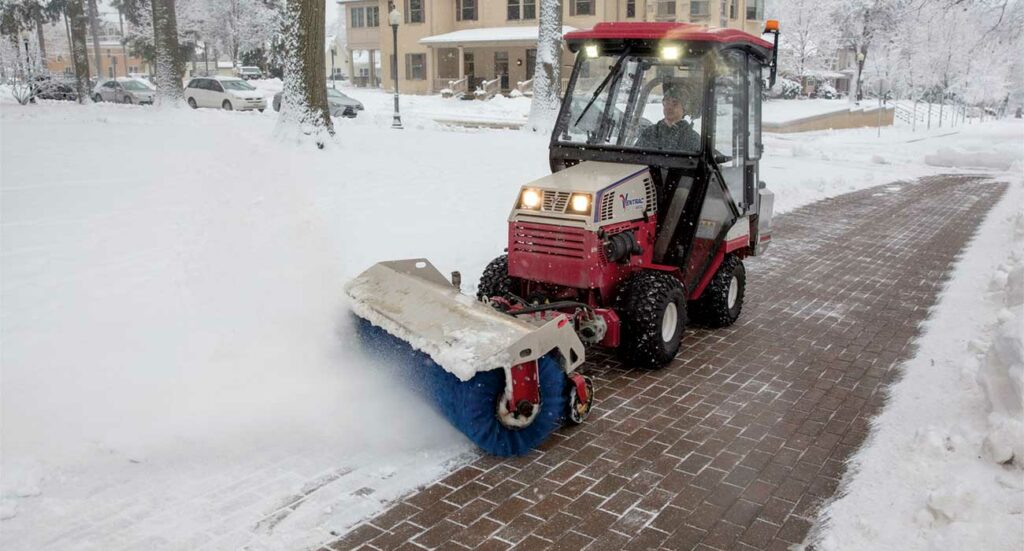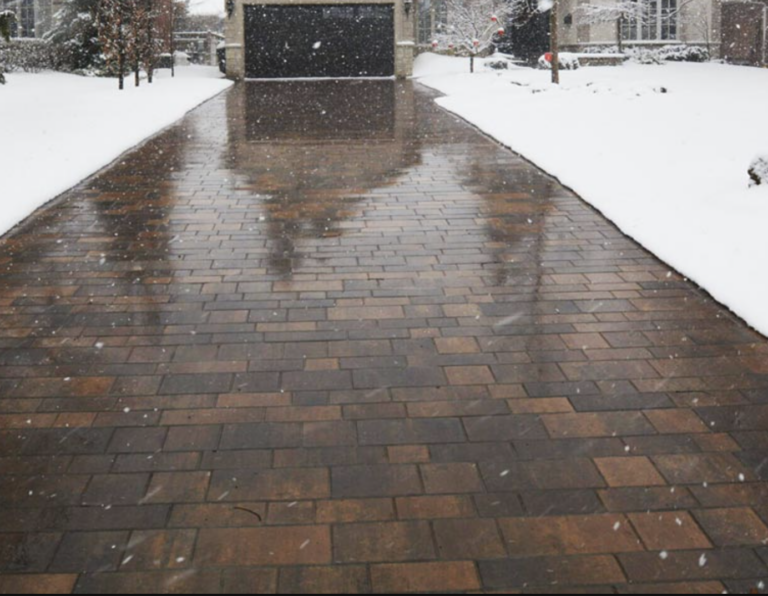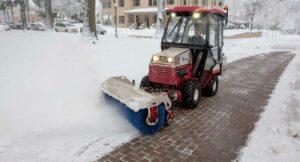Winter Maintenance for Brick Paving

How Do I Care for My Pavers in the Winter Months?
One of the questions we are frequently asked by homeowners who have installed a paver driveway, entrance or walkway is ̶ how do I care for my pavers in the winter months?
We need first to understand the paving stones are designed with high compressive strength and some of the lowest water absorption levels of all paving materials. This ensures that the paver will not absorb and trap water in its micro-voids, minimizing the risk of water freezing and expanding, which could ultimately damage the paver. Although this is important to minimizing then risk of potential damage from harsh winter elements, it’s still important to exercise caution when applying de-icing chemicals in the winter.
Whenever possible we recommend first trying to clear snow with a plastic tip shovel or broom for light dusty snows. Metal blades on shovels and plows can scratch the surface of your pavers and can leave behind small metal fragments that create rust stains and streaks. Therefore, we recommend using a plastic shovel, and putting plastic or rubber blade covers on any snow blowers or plows that have metal blades.
We realize there may be times when simple snow clear is not adequate and de-icing products may be needed. However, excessive use of any de-icing chemical is not recommended. Use only what you need to manage the ice at hand. As an alternative to de-icing chemicals consider using sand or kitty litter to help provide anti-slip traction as needed.
Always Avoid Using Magnesium-Based Products
Magnesium-based products are very aggressive and may cause damage to the surface of pavers. However, you can safely use sodium chloride based products (more commonly known as rock salt) when de-icing your driveway or front entrance. It is widely available and will melt snow and ice at temperatures down to approximately 16° F (-9° C). Below 16° F (-9° C), rock salt stops melting snow and ice. Keep in mind that sodium chloride can damage adjacent grass, plants and metal, so you need to apply it with caution and use as sparingly as possible.
After using de-icing products for winter care be sure to clean of excessive salt residue as soon as it is warm enough to hose off the paving surface.
I hate clearing snow from my driveway –
is there some miracle solution?
Actually, yes! If you haven’t already paved your driveway, you can incorporate a snow melt system, such as a heated driveway, underneath your pavers.

